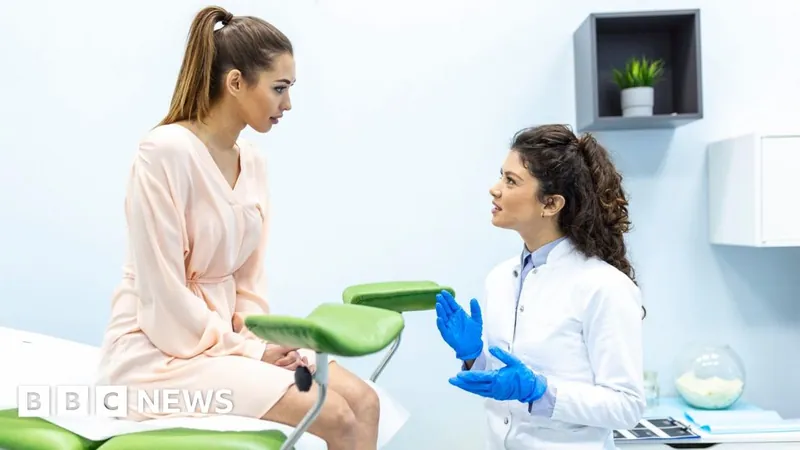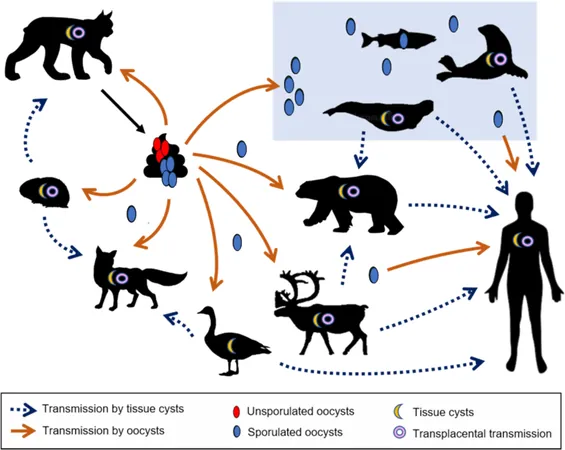
Cervical Screening Knowledge Gap Puts Lives at Risk, Warns Charity
2025-01-20
Author: Amelia
Cervical Screening Knowledge Gap Puts Lives at Risk, Warns Charity
A significant knowledge gap surrounding cervical screenings is threatening lives, according to the Eve Appeal, a leading cancer charity in the UK. Despite the fact that cervical screening saves approximately 5,000 lives each year, many eligible women are unaware of their rights during the procedure, contributing to alarmingly low participation rates.
Current data from NHS England reveals that more than five million women who are eligible for cervical screening have not kept up with their routine appointments. The lowest participation rates are alarmingly noted among women aged 25 to 29, with only 58% getting screened. The consequences of this lack of awareness can be devastating, as the screening tests for the human papillomavirus (HPV), a virus responsible for the majority of cervical cancer cases.
The Eve Appeal highlights that many women do not know they can request accommodations to make the screening process less uncomfortable. Research indicates that there are straightforward adjustments, such as:
Suggestions for Accommodations
1. Requesting longer appointments to avoid feeling rushed. 2. Using smaller speculums or applying lubrication for comfort. 3. Asking to be in more comfortable positions during the procedure. 4. Bringing a friend for emotional support. 5. Having the option to stop the screening if they experience discomfort.
Athena Lamnisos, chief executive of the Eve Appeal, emphasized, “There are really simple, straightforward things that you can ask for that patients just aren't aware of...basically, you can take control.” The charity conducted a survey with over 1,100 women in the lead-up to Cervical Cancer Prevention Week, shedding light on the importance of informed decisions during screenings.
Eve Hewitt, a woman living with Crohn's disease, shared her personal experience with the screening process. “If I don’t go in prepared and ready to advocate for myself, there is a lot of anxiety about the pain that could happen,” she explained, noting the importance of communication with healthcare providers to tailor the experience to individual needs.
Despite advancements, the importance of educating women about cervical screenings cannot be overstated. With ongoing efforts from the NHS aiming to eliminate cervical cancer by 2040, including the initiation of the HPV vaccination program, the need for awareness remains dire. Even vaccinated individuals must still participate in regular screenings, as there remains a small risk of developing cervical cancer.
As calls for increased education and support for cervical screening persist, it becomes crucial for women to take proactive steps toward understanding their rights during this potentially life-saving procedure. A well-informed public can contribute significantly toward reducing health disparities and ultimately saving lives. Don’t wait—educate yourself and advocate for the cervical health checks you deserve!









 Brasil (PT)
Brasil (PT)
 Canada (EN)
Canada (EN)
 Chile (ES)
Chile (ES)
 Česko (CS)
Česko (CS)
 대한민국 (KO)
대한민국 (KO)
 España (ES)
España (ES)
 France (FR)
France (FR)
 Hong Kong (EN)
Hong Kong (EN)
 Italia (IT)
Italia (IT)
 日本 (JA)
日本 (JA)
 Magyarország (HU)
Magyarország (HU)
 Norge (NO)
Norge (NO)
 Polska (PL)
Polska (PL)
 Schweiz (DE)
Schweiz (DE)
 Singapore (EN)
Singapore (EN)
 Sverige (SV)
Sverige (SV)
 Suomi (FI)
Suomi (FI)
 Türkiye (TR)
Türkiye (TR)
 الإمارات العربية المتحدة (AR)
الإمارات العربية المتحدة (AR)